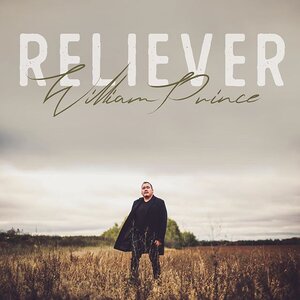The 28th edition of Toronto's annual wintertime music showcase, Winterfolk Blues and Roots Festival, celebrated music, activism and creativity at its new home this past weekend (February 21 to 23). Moving from the festival's traditional home along the clubs and pubs of the Danforth to its new home in the Annex at the Tranzac Club and Annex Hotel, the switch proved to be popular among festival-goers as the artists played to consistently packed rooms all weekend. Over 100 artists played in five separate rooms.
The festival began with a stellar ticketed event highligting the musical diversity of Winterfolk with a showcase of Blues and Blue Grass featuring sets by Toronto blues mainstays Ken Whiteley, Chris Whiteley and Diana Braithwaite, along with old-school country artists The Layrite Boys. This show highlights the history of modern North American music as blues and bluegrass are among the earliest forms of popular music this side of the Atlantic.
Saturday's highlights included a wonderful set by Alfie Smith and Nicole Christian. Alfie treated the crowd to some great blues guitar with "Sitting on Top of The World," while Nicole shared the story of receiving author Steven King's blessing for a song titled "Barn Dance." This show was heavy on the blues and Americana. Both artists are a treat to watch and will be playing a couple of shows over the course of the summer in Hamilton and Pelee Island, Ontario.
Saturday evening sessions were highlighted with a special showcase featuring some of the country's finest folk and Americana musicians, with Jon Brooks delivering a beautiful guitar heavy performance. Singer-songwriter extraordinaire Lynn Miles, along with guitarist Wendall Ferguson, delivered a stellar performance which highlighted Miles' fantastic songwriting. "Merle," a song inspired by the passing of the great Merle Haggard reminded everyone of the importance of Mr. Haggard as an artist and influencer to musicians and songwriters everywhere. Special guest Clare Lynch appeared for two songs and provided high harmonies on "Old Soul," a track from a previous album.
Pure folk duo Sue and Dwight played a few sets over the weekend with a special performance that paid homage to 1960's era folk on Sunday afternoon. Sue and Dwight had the good sense to provide the audience with lyric sheets to all of the songs to be performed during this session, which resulted in the first sing-along of Winterfolk weekend. An additional set featuring the greatest hits of Peter, Paul and Mary was very well received, as the duo featured hits by the groundbreaking 60's group, such as "If I Had My Way," "500 Miles," and their version of the John Denver classic "Leaving on a Jet Plane." Sue and Dwight perform similar sets regularly at the Free Times Café in Toronto, the third Wednesday of every month.
Perhaps the finest showcase of the weekend took place with the Sunday blues performance of Jack DeKeyzer. The first half of the show consisted of Jack taking the crowd to school, with a history lesson based on the evolution of blues music in North America. Taking fans through the early blues and highlighting many influential musicians such as Lightning Hopkins, Muddy Waters and Buddy Guy, Jack blew the crowd away by showing the guitar techniques of these groundbreaking blues guitarists. Jack then provided the link between those musicians and the evolution of modern rock as British rockers Keith Richards, Eric Clapton and Jimmy Page introduced white America in the 1960s to the blues music of Muddy Waters and Buddy Guy, through their interpretation of the blues style of guitar playing. Examples were provided with snippets of the Clapton classic "Crossroads," and the Led Zeppelin classic "A Whole Lotta Love," which prominently featured Jimmy Page on guitar. A blues jam followed this set, featuring other guitar greats Mike McKenna, Danny Marks, D'Arcy Wickham and Donnie Roberts.
Winterfolk is always a great kickoff to the folk festival season. If the success of Winterfolk is any indication of what 2020 will bring to the festival circuit, music fans are in for a huge treat this coming year.


